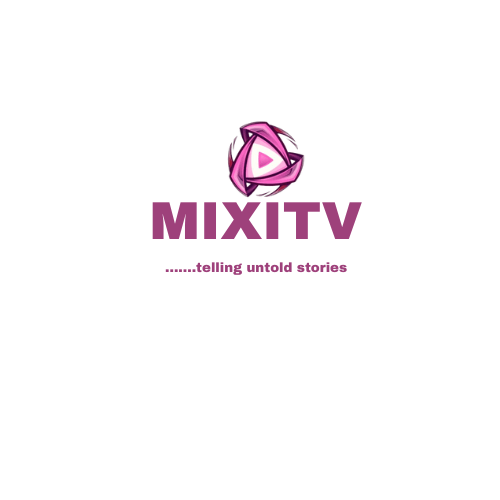By Afolabi Osho
The Nigeria-Cameroon chimpanzee, one of the rarest subspecies of chimpanzee, faces a precarious existence with less than 6,000 individuals remaining in the wild. The most significant population, approximately 1,000, resides in the Gashaka-Gumti National Park in Nigeria. This critical haven for biodiversity is now under severe threat due to the escalating bushmeat trade, a crisis that necessitates immediate and decisive action.
World Nature Conservation Day on July 28th offers a timely reminder of our collective responsibility to protect our natural heritage. In this context, the Nigerian and Cameroonian governments, in collaboration with the World Wildlife Fund (WWF) and other conservation partners, must urgently impose a ban on the bushmeat trade within the Nigeria-Cameroon National Park. This measure is essential to safeguard the remaining chimpanzee populations and the broader ecosystem.
The Bushmeat Crisis
Bushmeat, or meat from wild animals, has long been a critical resource for the rural poor in Central African countries like Cameroon and the Democratic Republic of Congo. It provides a flexible source of income, animal protein, and a safety net in times of hardship. However, the increasing demand, particularly in urban centers, has led to unsustainable hunting practices. This demand threatens not only chimpanzees but also a wide array of large and medium-sized mammals and birds.
The WWF’s African Great Ape Programme has highlighted the severe consequences of this crisis. In the Congo Basin alone, over one million tonnes of bushmeat are consumed annually, equivalent to almost four million cattle. While policies and legislation exist to limit the trade, enforcement remains inconsistent and often ineffective.
The Role of Protected Areas
Protected areas like Gashaka-Gumti National Park are vital for long-term biodiversity conservation. These areas offer a refuge for endangered species, allowing them to thrive away from human exploitation. However, the effectiveness of these protected zones is undermined by illegal activities such as bushmeat hunting. The commercialization of bushmeat has transformed local subsistence hunting into a large-scale industry, posing a severe threat to wildlife populations.
WWF’s Comprehensive Approach
To address this multifaceted issue, WWF, in partnership with various stakeholders, has implemented several strategies:
1. Creation and Management of Protected Areas: Establishing and maintaining protected areas is crucial for biodiversity conservation. WWF works with local authorities to manage these zones effectively.
2. Protecting Wildlife in Logging Concessions: By collaborating with logging companies, WWF helps provide alternative protein sources to workers and controls access roads to prevent bushmeat poaching.
3. Clamping Down on Wildlife Crime: WWF elevates wildlife crime to the highest political agendas, advocating for stronger laws to equate illegal wildlife trade with other serious crimes such as drug and arms trafficking.
4. Addressing Weak Governance and Corruption: Exposing government officials involved in the illegal trade and praising those with zero tolerance for corruption are vital steps in combating the issue.
5. Building Capacity and Support: Strengthening law enforcement, anti-poaching measures, and awareness-raising activities are essential components of WWF’s strategy.
The Need for a Ban
Given the severity of the situation, a complete ban on the bushmeat trade within the Nigeria-Cameroon National Park is imperative. Such a ban would require robust enforcement and comprehensive community engagement to provide alternative livelihoods and protein sources for local populations.
Advocacy Through NGOs and Media
Non-governmental organizations (NGOs) and the media play a pivotal role in advocating for conservation policies. By raising awareness and putting pressure on policymakers, they can drive significant change. The WWF’s successful campaigns, such as the 2009 anti-poaching campaign in Cameroon, demonstrate the power of coordinated efforts. These campaigns resulted in the confiscation of over 500 carcasses and the arrest of a chimpanzee poacher, showcasing the impact of focused enforcement.
Moving Forward
To sustain these efforts, ongoing research and monitoring of bushmeat market trends are essential. WWF’s support for TRAFFIC’s Central Africa programme, which monitors the trade and promotes effective strategies, is crucial. Workshops and action plans, like the one convened in the DRC, are steps in the right direction.
In conclusion, the conservation of the Nigeria-Cameroon chimpanzee and other endangered species in the Gashaka-Gumti National Park hinges on banning the bushmeat trade. With the concerted efforts of NGOs, media, and international partners, we can ensure the survival of these precious ecosystems. It is time for a unified call to action to preserve our natural heritage for future generations.
Contact Information:
Afolabi osho
Eco-Retreat Africa Limited
chat: + 2349052706927
https://www.facebook.com/EcoretreatAfrica
References:
-
WWF African Great Ape Programme
-
TRAFFIC’s Central Africa Programme
-
Gashaka-Gumti National Park Conservation Reports


